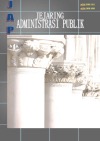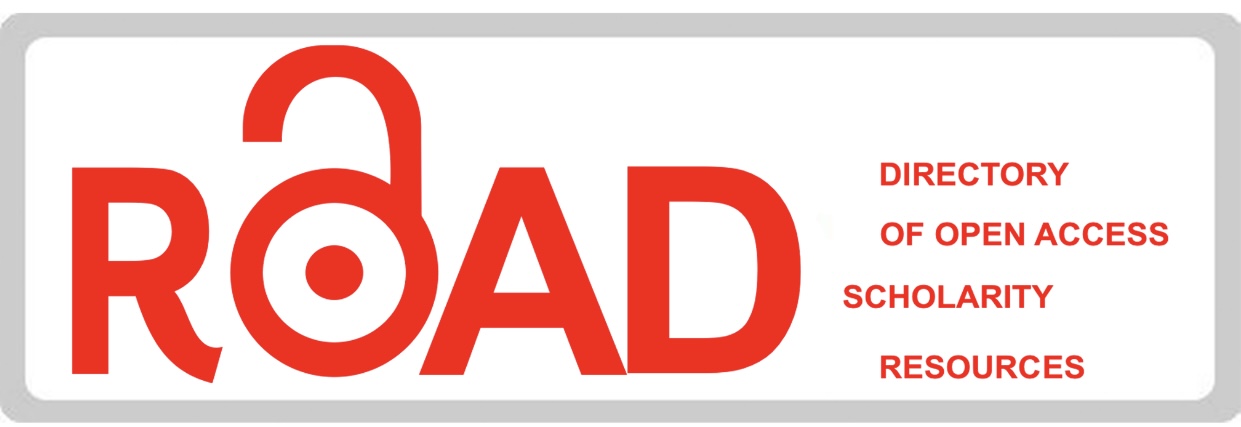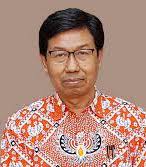Adaptive Governance or Status Quo? Unpacking the City of Jakarta's Approach to the Air Pollution Control Program
Downloads
In recent years, Jakarta has experienced an increase in air pollution which has the potential to have a significant impact on Jakarta residents not only in terms of health, but socio-cultural and productivity. This encourages the need for effective governance strategies to overcome air pollution problems. This study seeks to critically analyze the approach used by the city of Jakarta in dealing with air pollution to find out whether the city of Jakarta's air pollution control policy has led to innovative, flexible and adaptive governance, or is still more inclined towards maintaining the status quo. Based on qualitative data, including in-depth interviews, policy analysis, and consultation with stakeholders, this research examines Jakarta's policy mechanisms, community participation pathways, and inter-agency coordination in controlling air quality and dealing with pollution. The research results show a lack of alignment between progressive policy frameworks and implementation challenges, thus underscoring the need for a more adaptive and dynamic approach. The approach adopted in Jakarta appears to be dominated by a top-down, government-led model, where policies and decisions are primarily formulated and implemented with minimal participation from non-governmental institutions. Such models, while ensuring efficient decision making, may exclude valuable insights of other stakeholders and hinder innovative and context-specific solutions. Additionally, these rigid structures appear to lack the flexibility and responsiveness that are hallmarks of adaptive governance, potentially reducing cities' ability to effectively address air pollution challenges. This research underscores the need for a more inclusive and adaptive governance framework in managing air pollution in Jakarta.
Andonova, L. B., Betsill, M. M., & Bulkeley, H. (2009). Transnational Climate Governance. Global Environmental Politics, 9(2), 52–73. https://doi.org/10.1162/glep.2009.9.2.52
Araral, E., & Hartley, K. (2013, June 26). Polycentric Governance for a New Environmental Regime: Theoretical Frontiers in Policy Reform and Public Administration. International Conference on Public Policy, Grenoble,. https://s3.amazonaws.com/arena-attachments/1753533/2d3d2d983dc492fdd09ad1d34af4aaab.pdf?1518527912
Bowen, G. A. (2009). Document Analysis as a Qualitative Research Method. Qualitative Research Journal, 9(2), 27–40. https://doi.org/10.3316/QRJ0902027
Braun, V., & Clarke, V. (2006). Using thematic analysis in psychology. Qualitative Research in Psychology, 3(2), 77–101. https://doi.org/10.1191/1478088706qp063oa
Bulkeley, H., & Betsill, M. (2005). Rethinking Sustainable Cities: Multilevel Governance and the "Urban” Politics of Climate Change. Environmental Politics, 14(1), 42–63. https://doi.org/10.1080/0964401042000310178
Chaffin, B. C., Gosnell, H., & Cosens, B. A. (2014). A decade of adaptive governance scholarship: Synthesis and future directions. Ecology and Society, 19(3). https://www.jstor.org/stable/26269646
Dietz, T., Ostrom, E., & Stern, P. C. (2003). The Struggle to Govern the Commons. Science, 302(5652), 1907–1912. https://doi.org/10.1126/science.1091015
Firman, T. (2009). The continuity and change in mega-urbanization in Indonesia: A survey of Jakarta–Bandung Region (JBR) development. Habitat International, 33(4), 327–339. https://doi.org/10.1016/j.habitatint.2008.08.005
Folke, C., Hahn, T., Olsson, P., & Norberg, J. (2005). ADAPTIVE GOVERNANCE OF SOCIAL-ECOLOGICAL SYSTEMS. Annual Review of Environment and Resources, 30(1), 441–473. https://doi.org/10.1146/annurev.energy.30.050504.144511
Glaser, B. G., & Strauss, A. L. (2017). The Discovery of Grounded Theory: Strategies for Qualitative Research (1st ed.). Routledge. https://doi.org/10.4324/9780203793206
Hariani, N. J. (2023). Co-designing Curriculum for Rural Education in Indonesia: Promoting Relevance and Engagement for Holistic Education Development. 1429–1441. https://doi.org/10.22492/issn.2188-1162.2023.114
Huitema, D., Mostert, E., Egas, W., Moellenkamp, S., Pahl-Wostl, C., & Yalcin, R. (2009). Adaptive Water Governance: Assessing the Institutional Prescriptions of Adaptive (Co-)Management from a Governance Perspective and Defining a Research Agenda. Ecology and Society, 14(1). https://www.jstor.org/stable/26268026
IQAir. (2020). 2019 World Air Quality Report. IQAir. https://www.iqair.com/world-most-polluted-cities/world-air-quality-report-2019-en.pdf
Israel, M., & Hay, I. (2006). Research Ethics for Social Scientists. SAGE Publications, Ltd. https://doi.org/10.4135/9781849209779
Lawrence, T. B., & Suddaby, R. (2006). Institutions and Institutional Work. In S. Clegg, C. Hardy, T. Lawrence, & W. Nord, The SAGE Handbook of Organization Studies (pp. 215–254). SAGE Publications Ltd. https://doi.org/10.4135/9781848608030.n7
North, D. C. (1990). Institutions, Institutional Change and Economic Performance (1st ed.). Cambridge University Press. https://doi.org/10.1017/CBO9780511808678
Oliver, C. (1992). The Antecedents of Deinstitutionalization. Organization Studies, 13(4), 563–588. https://doi.org/10.1177/017084069201300403
Ostrom, E. (2010). Polycentric systems for coping with collective action and global environmental change. Global Environmental Change, 20(4), 550–557. https://doi.org/10.1016/j.gloenvcha.2010.07.004
Pahl-Wostl, C., Sendzimir, J., Jeffrey, P., Aerts, J., Berkamp, G., & Cross, K. (2007). Managing Change toward Adaptive Water Management through Social Learning. Ecology and Society, 12(2). https://www.jstor.org/stable/26267877
Pierson, P. (2000). Increasing Returns, Path Dependence, and the Study of Politics. American Political Science Review, 94(2), 251–267. https://doi.org/10.2307/2586011
Selznick, P. (2007). Leadership in administration: A sociological interpretation (California paperback ed., [Nachdr.]). Univ. of California Press.
Suaedi, F., Irawan, D., & Hariani, N. J. (2019). Collaborative Governance in Controlling Air Pollution in Metropolitan. International Journal Of Civil Engineering And Technology (IJCIET), 10(5), Article 5.
WHO. (2021). Who Global Air Quality Guidelines: Particulate Matter ("Žpm2.5 and Pm10)"Ž, Ozone, Nitrogen Dioxide, Sulfur Dioxide and Carbon Monoxide. https://iris.who.int/bitstream/handle/10665/345329/9789240034228-eng.pdf
Copyright (c) 2023 Dimas Luqito Chusuma Arrozaaq, M. Irwanda Firmansyah

This work is licensed under a Creative Commons Attribution-ShareAlike 4.0 International License.
All articles submitted by the author and published in the Jejaring Administrasi Publik are fully copyrighted to their authors under the Creative Commons Attribution-ShareAlike 4.0 International License. The formal legal aspect of journal publication accessibility refers to the Creative Commons Attribution-ShareAlike (CC BY-SA).
















